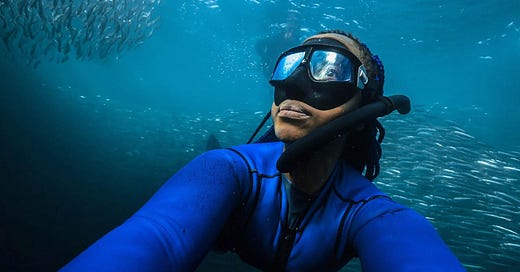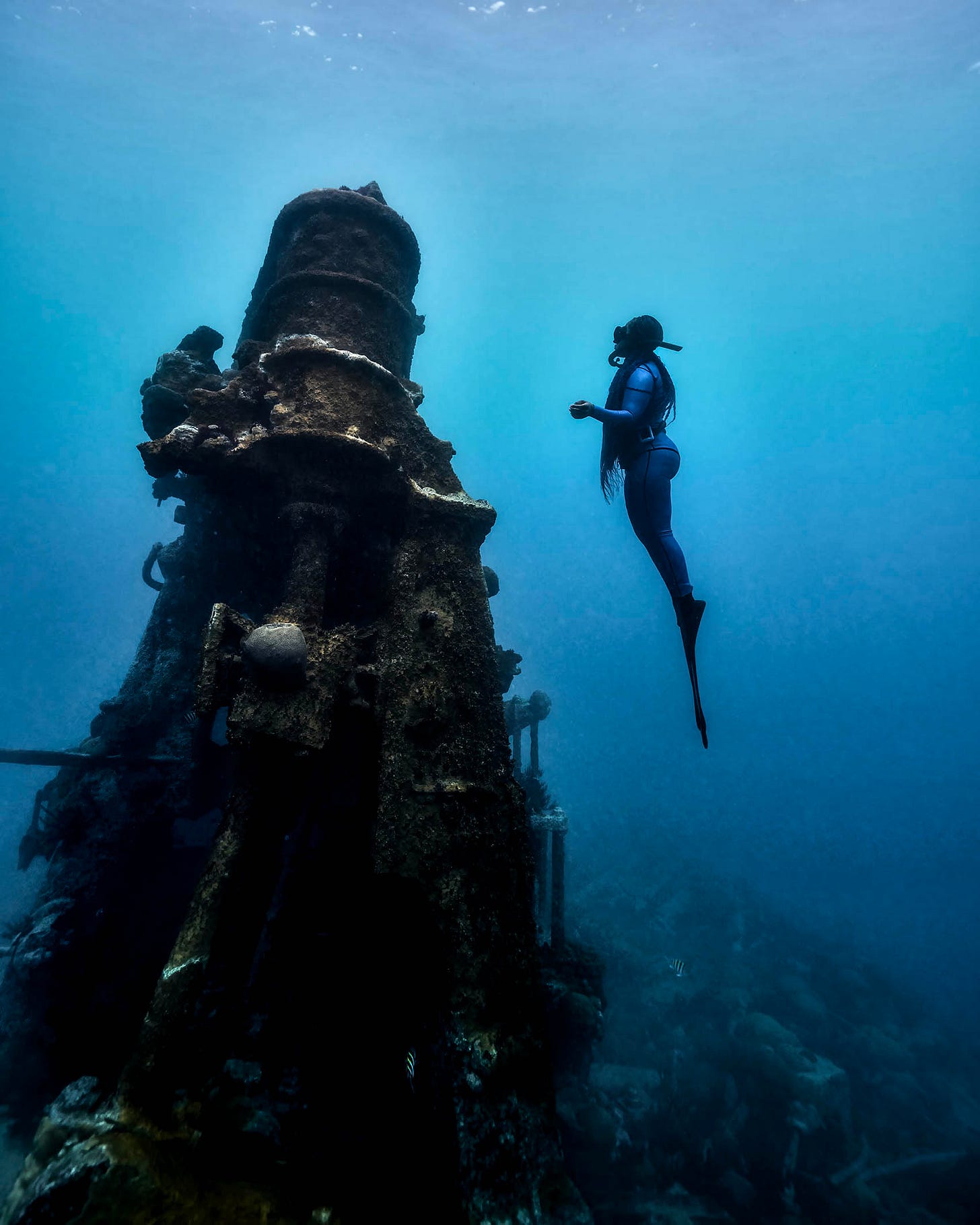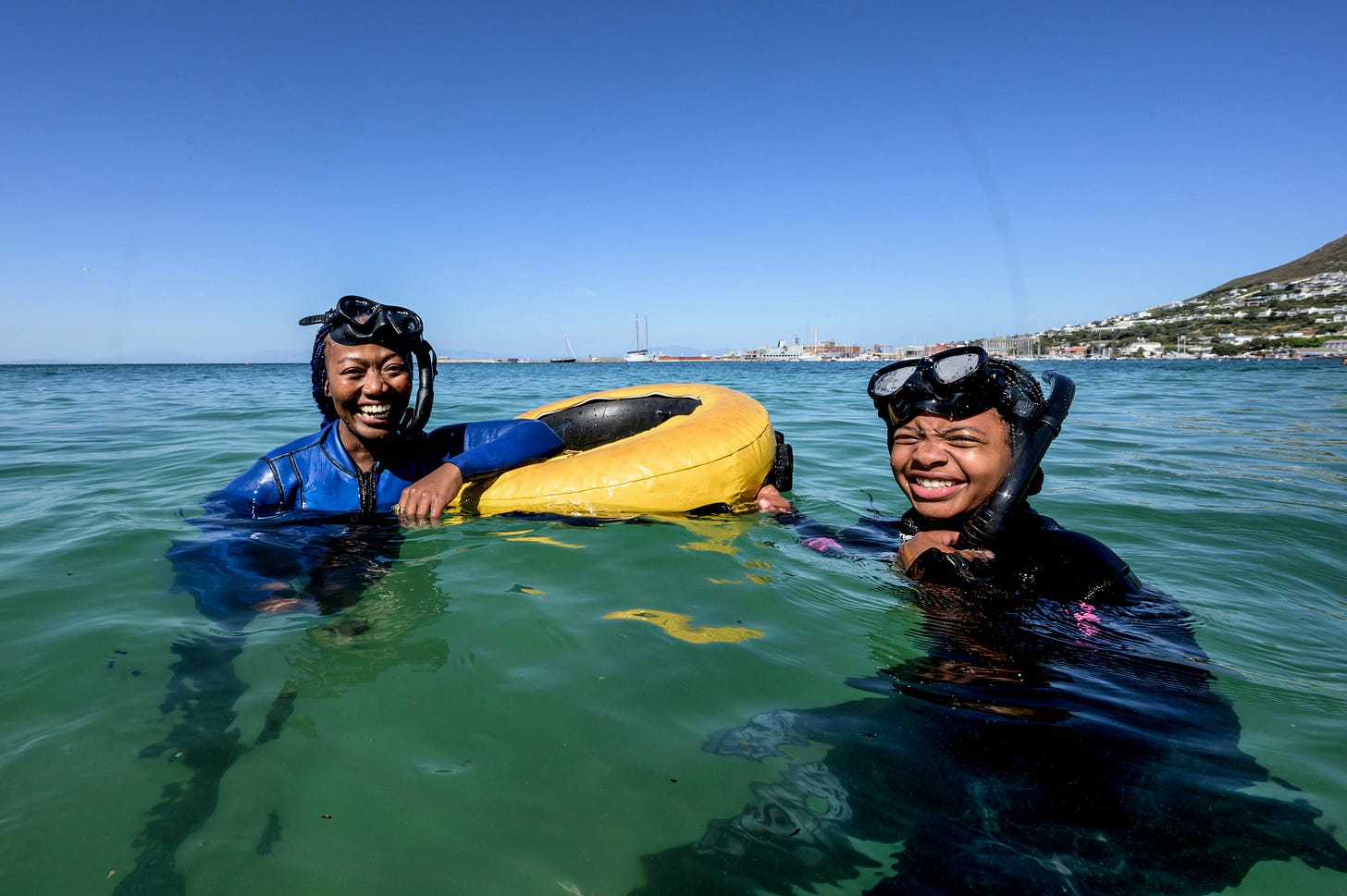From Soweto to the sea
Apartheid tried to stop black people from enjoying beaches and the ocean. This is changing as people create new stories about life under the waves.
Doug Mattushek in Cape Town
Freediving means holding your breath and slipping below the waves – equipped with just a mask, snorkel, and weight belt. The cold water tingles your lips as you submerge. Beneath the surface, the chaos of life fades, replaced by the singular focus on your breath.
A vibrant world awaits below: corals, nudibranchs, urchins, starfish, and sponges thrive haphazardly on rocks. At depth, kelp stems rise, their fronds creating a canopy that sways with the swell. The underwater crackling and diaphragm contractions remind you that this is not your natural habitat.
This is the deep blue world of Zandile Ndhlovu, South Africa’s first black freediving instructor.
“Freediving lets me silence the world and become present,” Ndhlovu tells The Continent. “It has taught me how to be still and use my breath in how I show up in the world.”
Ndhlovu grew up in Soweto, some 600km from the sea. “When you grow up in Soweto, you don’t have an idea of what the ocean is,” she says. “The only thing that you have are the stories about bodies of water.”
Many of those stories instilled not the promise of meditative calm, but fear: “We were told to stay away from the water,” she says. “It was no place for us to be.”
Near her grandmother’s home, a strong river brought regular reports of people drowning. This only added to the mythologising. “There would be a story of how a snake took the child. It was this big fearful place.”
This stayed with her until she went to the coast. “The first time I got to see the ocean, it was beautiful and powerful and scary – but it was also inviting.”
Later, on a snorkelling trip to Bali, she decided to become a professional. First she took up scuba diving, then freediving, eventually becoming a qualified instructor – allowing her to help others go underwater. Dubbed “the Black Mermaid”, Ndhlovu emerged as a leader.
In 2020, she founded the Black Mermaid Foundation in Langa, a township near Cape Town. Despite having access to long beaches, Langa has been on the wrong side of racist planning laws introduced by the apartheid regime – the impact of which persists today.
Under the apartheid government’s Separate Amenities Act, beaches were part of the public spaces that were segregated until as recently as 1990. Police vigorously enforced “Whites Only” notices, and so the best beaches – whether the most easily accessible or picturesque – were spaces non-white people could not enter.
Ndhlovu says that the goal of her foundation is to enable access to the ocean and overcome the “oppressive systems that prevented black people from enjoying the best beaches”.
And that in turn means people are more connected to the ocean: “You can’t protect something that you don’t know. You can’t protect something that you’ve never experienced. You can’t protect something you don’t believe belongs to you too. It’s creating that connection and ownership that allows children to know that these waters are theirs, too.”
Since its inception, the foundation has introduced more than 400 children to the shallows, affording them a window into the once inaccessible underwater world.
Ndhlovu’s achievements extend beyond diving. She also authored a children’s book that has been published in five languages. She was also named among the BBC’s 100 most influential and inspiring women in 2023, alongside Michelle Obama, Nobel prize-winning economist Claudia Goldin, and renowned human rights lawyer Amal Clooney, among others.
Ndhlovu’s book, Zandi’s Song, is “about the ocean’s beauty, but it also covers conservation, culture, and black community history,” she explains. Illustrated by Katlego Keokgale, it is partly autobiographical and serves as an educational tool. “It includes a strong message about plastic pollution and aims to empower children to be the change in their community,” she says.
This may be the Black Mermaid’s most powerful legacy: a reminder, in a historically divided country, that the ocean belongs to all – and protecting it is a collective responsibility.






